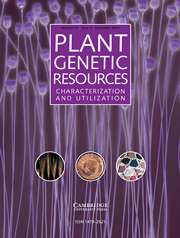Article contents
Linking access and benefit-sharing for crop genetic resources to climate change adaptation
Published online by Cambridge University Press: 15 December 2014
Abstract
This article links the concept of access and benefit-sharing as it pertains to crop genetic resources to climate change adaptation and argues that systems for access and benefit-sharing can, and should, be designed to contribute to climate change adaptation for agriculture. The access and benefit-sharing provisions of the two international agreements that together provide the international legal framework for access and benefit-sharing – the Convention on Biological Diversity (with its Nagoya Protocol) and the International Treaty on Plant Genetic Resources for Food and Agriculture – are presented and analysed. How these agreements are implemented is central to adaptation, as the effects of climate change threaten crop genetic resources and future adaptive capacity, and, if properly maintained and utilized, crop genetic resources will be essential to climate change adaptation across the globe. This article, therefore, argues that an important adaptation strategy linked to such implementation is to direct benefit-sharing for crop genetic resources towards adaptation efforts and to ensure facilitated and efficient access to crop genetic resources for adaptation purposes. Some options for how this can be pursued at both the international and national level are offered.
Keywords
- Type
- Research Article
- Information
- Copyright
- Copyright © NIAB 2014
References
- 6
- Cited by


